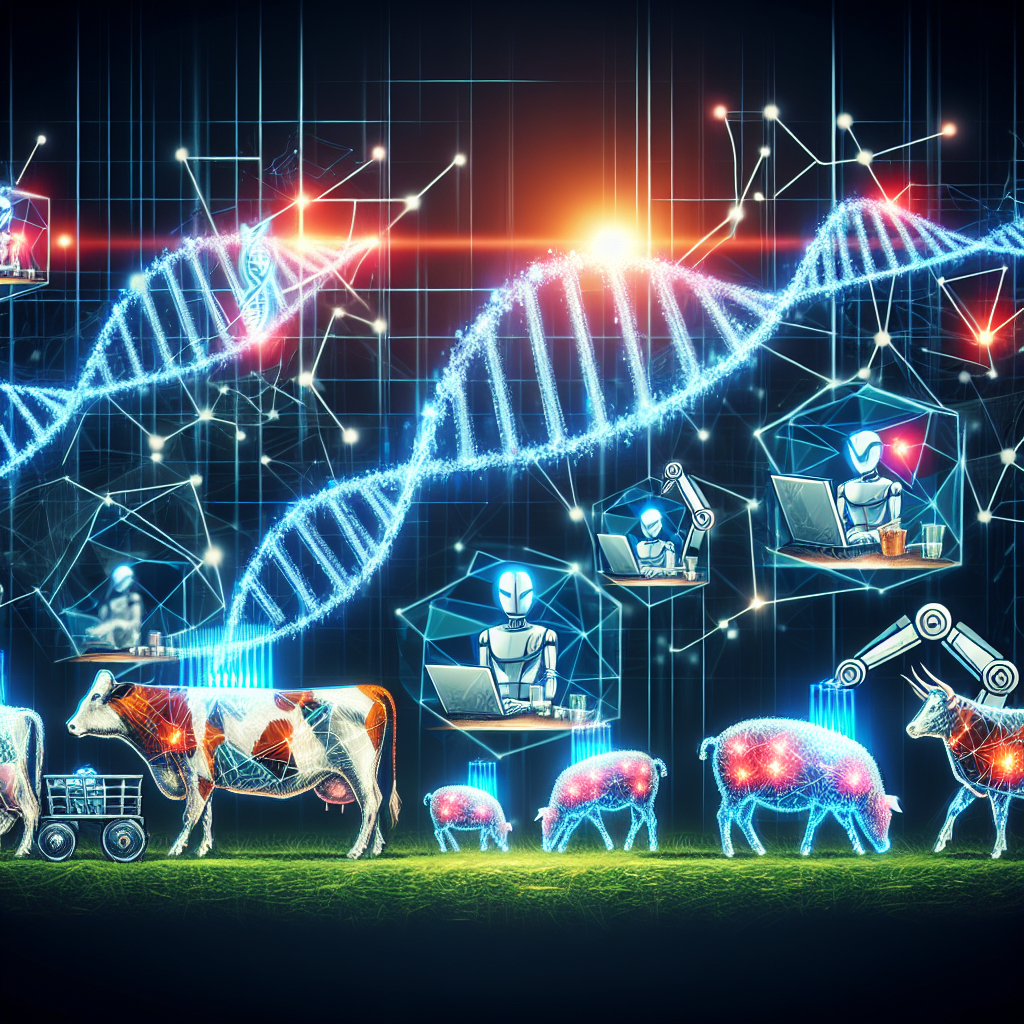Advancements in technology have revolutionized various industries, and agriculture is no exception. With the use of Artificial Intelligence (AI) in livestock genetics improvement, farmers can now enhance the quality and productivity of their livestock in ways that were previously unimaginable. AI has the potential to revolutionize the livestock industry by making breeding more efficient, precise, and cost-effective.
One of the key areas where AI is making a significant impact is in livestock genetics improvement. By utilizing AI algorithms and machine learning, farmers can now analyze large amounts of data to identify the most desirable traits in their livestock and make informed breeding decisions. This has the potential to drastically improve the quality of livestock, increase productivity, and ultimately contribute to a more sustainable and efficient agriculture industry.
AI algorithms can analyze genetic data from individual animals and their ancestors to identify genetic markers associated with desirable traits such as disease resistance, growth rate, and milk production. By using this data, farmers can make informed decisions about which animals to breed in order to pass on these desirable traits to future generations. This selective breeding process can lead to a more genetically diverse and resilient herd that is better able to adapt to changing environmental conditions.
Another way AI is being used for livestock genetics improvement is through the use of genomic selection. Genomic selection involves analyzing the entire genome of an animal to predict its genetic merit for specific traits. By using AI algorithms to analyze this data, farmers can make more accurate predictions about the potential performance of individual animals and make more informed breeding decisions. This can lead to faster genetic progress and more efficient breeding programs.
In addition to improving the genetic quality of livestock, AI can also help farmers manage their herds more effectively. For example, AI-powered monitoring systems can track the health and behavior of individual animals in real-time, allowing farmers to detect and address any issues before they become a problem. This can lead to better overall animal welfare and increased productivity.
Furthermore, AI can also help farmers optimize their feeding and breeding programs by analyzing data on animal nutrition, growth rates, and reproductive performance. By using this data to make informed decisions, farmers can maximize the efficiency of their operations and reduce waste.
One of the key benefits of using AI for livestock genetics improvement is the potential to increase the sustainability of agriculture. By breeding livestock with desirable traits such as disease resistance and efficient feed conversion, farmers can reduce the need for antibiotics and other inputs, leading to a more environmentally friendly and sustainable farming system.
FAQs:
Q: How is AI used in livestock genetics improvement?
A: AI is used in livestock genetics improvement by analyzing genetic data from individual animals to identify desirable traits and make informed breeding decisions. This can lead to a more genetically diverse and resilient herd with improved productivity and sustainability.
Q: What are the benefits of using AI for livestock genetics improvement?
A: Some of the benefits of using AI for livestock genetics improvement include increased productivity, improved genetic diversity, better animal welfare, and more sustainable farming practices.
Q: How can farmers implement AI for livestock genetics improvement?
A: Farmers can implement AI for livestock genetics improvement by collecting and analyzing genetic data from their animals, using AI algorithms to identify desirable traits, and making informed breeding decisions based on this data.
In conclusion, the use of AI for livestock genetics improvement has the potential to revolutionize the agriculture industry by making breeding more efficient, precise, and sustainable. By analyzing genetic data and making informed breeding decisions, farmers can improve the quality and productivity of their livestock in ways that were previously unimaginable. As technology continues to advance, the possibilities for using AI in agriculture are endless, and the future of livestock genetics improvement looks brighter than ever.

